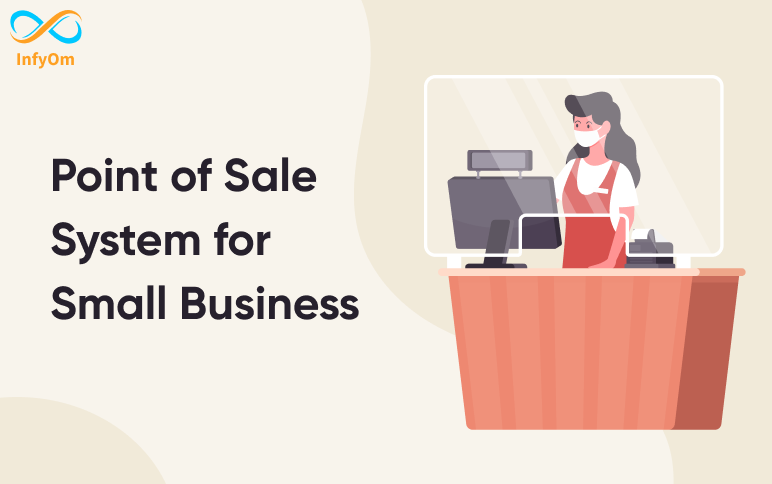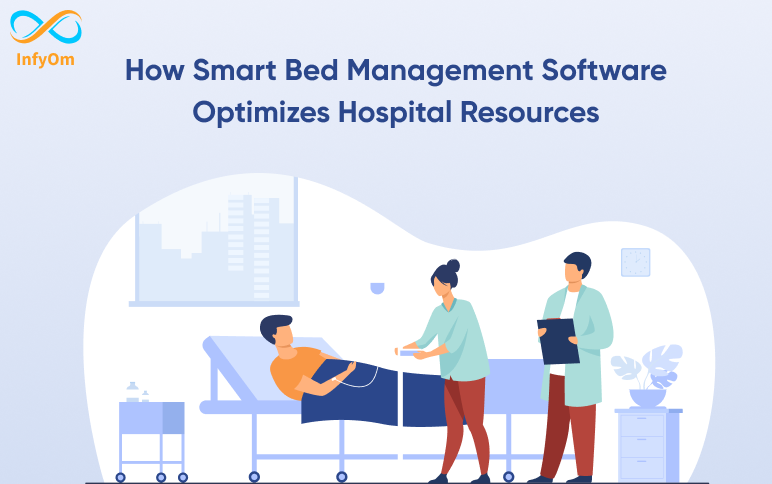A Point of Sale (POS) system is a critical tool for businesses that want to streamline their sales processes and manage transactions efficiently. Essentially, it’s the place where sales are made and can include both hardware and software that help businesses manage everything from sales tracking to inventory management and customer data. For small businesses, a POS system can significantly enhance daily operations by simplifying tasks and improving accuracy, ultimately leading to better customer service and business growth.
Understanding the Basics of a Point of Sale System
A POS(point of sale) system is the hardware and software that work together to assist retail businesses in processing sales transactions, as well as managing various aspects of their daily operations. It usually consists of a cash register or terminal, barcode scanner, receipt printer, and software that is interconnected with the restocking and sales data.
Every time a customer buys something, the POS system logs the transaction and adjusts the inventory level accordingly. Streamed lining the checkout process and reducing human error in recording sales and inventory data.
What is a Point of Sale System?
A Point of Sale (POS) system is a computerized device that processes sales at retail stores and keeps track of products bought and sold to solve inventory problems. It acts as a central point where all transactions are tracked enabling retailers to manage sales, inventory levels, and customer information more confidently.
In addition, most new POS systems have other features such as CRM (Customer Relationship Management) tools, loyalty program integration, and often e-commerce options. Not only do these features make the customer shopping experience better, but they also help businesses in building long-term relationships with them.
Importance of POS System
Implementing a POS system in a retail business offers several benefits. Firstly, it enables faster and more accurate transactions, reducing the chances of errors and improving customer satisfaction. Additionally, a good POS system provides real-time inventory management, ensuring that retailers can easily track stock levels and avoid product shortages or overstocking.
Additionally, a POS system also assists in creating detailed sales reports and analytics that help retailers understand their business performance for them to strategize better. The information in this valuable data can be useful when recognizing sales trends, trending products as well from customer preferences.
POS systems can also be connected and integrated with other tools such as accounting software, payroll systems, or marketing platforms. This integration is very helpful as it saves you valuable time since there will not be any manual data entry from one system to another and also reduces errors in entering the data into different systems.
Key Features of POS System
A retail POS system is designed to have a multitude of features that help improve the overall efficiency and productivity of a retail business.
A reliable retail POS system can drastically transform the way a business in the sector operates as it provides an integrated, flawless solution to perform multiple functions involved with running your operations.
Inventory Management Capabilities
Inventory management is one of the important features of a retail POS system. Product Inventory — so retailers can keep track of product quantity, reorder products, and see sales patterns. Real-time inventory levels reduce overstocking and stockouts, improving the profitability of any business.
Retail POS systems with advanced inventory management capabilities may support functionality like barcode scanning, stock level alerting, and supplier integration for a smooth purchasing fulfillment experience.
Customer Relationship Management
Most retail POS systems include customer relationship management (CRM) functions, which help to capture and analyze buyer activity. Retailers can determine what customers really want and personalize offerings based on those data, with this approach generating targeted communications to increase revenue from existing customer bases.
Some provide customer data capture, while others possess loyalty program integration to encourage repeat business and purchases.
Sales Reporting and Analytics
A retail POS system is capable of creating detailed sales reports and deeper analytics. This allows them to see sales trends, top-selling products, and employee performance. This includes making informed business decisions ( e.g. price optimization, course correction in marketing) based on real-time data points available at any given time.
Additionally, modern retail POS systems utilize cloud-based technology which allows them to deliver real-time sales data accessible from anywhere so that retailers may take advantage of on-the-go information and answer immediately to demand-side alterations.
Choosing the Right POS System for Your Retail Business
One of the key things to keep in mind when going for a POS system for your retail business is that you need it to meet all the special needs and requirements related to selling products from a brick-and-mortar store.
A Point of Sale system is arguably the most important investment a retail business can have today. A good POS system can help to view this situation, work more efficiently, and eventually have the best possible customer experience. Certainly, in the market what not one can get is really confusing on which is best suited for your business.
Assessing Your Business Needs
Before selecting the POS system, understand your business needs. Understand the size of your store and how many times a day you are paying for it, along with what level of inventory management you’re looking for. Think about any other features: Do you need it to be integrated with your CRM or some type of software?
Please also give thought to where the company is likely headed and associated growth & expansion throughout. Having to switch systems as your business grows is a hassle, so it’s important to avoid this issue by using a POS system that can evolve alongside your company. Choose features that will help you scale your business for multiple locations, e-commerce capabilities, and loyalty programs to make sure investment is future-proofed.
Comparing Different POS Systems
Well, simply research and compare it to other POS systems out there. Seek out industry-specific solutions that deliver custom to meet your particular business needs. Check for usability, reliability, and customer assistance in each provider. You can read reviews to make a decision.
Also, take into account the hardware compatibility of the POS systems you are considering. Pick a POS system that works well with the hardware you already have such as a barcode scanner, receipt printers, and payment terminal) and reduce the extra costs of buying new equipment.
Evaluating Cost and Value
In addition, stretch your sight over the initial investment and determine how much value can a POS system add up in the long term to your business. Ask yourself: Am I going to be able to do improved reporting and analytics through my POS system, will it help me track inventory or should I be thinking about upgrading all of the integrated marketing tools that are available?
Implementing a POS System in Your Retail Business
After screening through hundreds of POS systems for retail businesses, implementing the same is as important to make sure you have a seamless transition and fully utilize most features.
At the time of getting a POS system, you must have an idea about how the physical setup will be in your retail area. Optimize the workflow by placing terminals and scanners for hardware components in strategic locations to be accessible as needed. Also, think about the consistency of net connection, also strength sources to ensure the right functioning.
Training Your Staff on the New System
Fully train your crew Introduce them to the various features of the POS system such as processing sales, tracking inventory levels, and creating reports. Give them continued support and resources to help with any problems or questions that arise during the implementation phase.
You should also think about having role training to make sure that every employee will know what they need and don´t within your POS system. Such a tailor-made approach makes the day-to-day operations effective and reduces the chances of mistakes.
Integrating POS System with Other Business Operations
For example, if you want to really take advantage of what your POS system offers then connect it with other business operations, such as accounting or e-commerce platforms, and even customer loyalty programs. By combining the two, they are able to work together and share data without pressure on one or another making manual inputs that might result in a double-up of information.
Further, connecting your POS system with customer relationship management (CRM) software could allow you to gain insights into shopper behavior and preferences. By combining data from both systems, you can customize your marketing strategies to enhance user engagement and drive revenue.
Future Trends in Retail POS Systems
The real world is continuously innovating, and so too are POS systems changing to cater to the evolving requirements of businesses & offer ease in service to the customer side.
Mobile POS Systems
A form of POS system designed for use on mobile devices, which allows retailers to enable transactions over the phone. The flexibility to be able to do that, which in turn allows businesses to serve the smallest customer beyond traditional checkout counters leads towards more personalized and convenient shopping experiences.
If put in the light of a customer visiting a clothing store and seeing an outfit that he wants to walk out with. With a staffed store full of checkout lines, hence eliminating the need for customers to wait in crowded checkout lines. The associate can then follow through on the transaction in situ, removing that crucial step for customers to wait or seek a cashier. The customer gets to save time and have a user-friendly shopping experience rather than wandering on the website.
Cloud-Based POS Systems
Retailers using cloud-based POS systems save their data remotely in the cloud where they have the freedom to access it from any location. This means no on-premises servers are necessary and you see real-time updates across all locations. Scalable: not only is that another indicator of cloud-based solutions (it’s growing at your pace) but this can also accommodate the requirements.
Imagine a retail chain with several branches in different cities. Because of a cloud-based POS, the chain store headquarters is able to oversee real-time inventory conditions and all sales with customer information. This central approach allows the operations to be streamlined and for managers to make decisions promptly in identifying trends and making modifications necessary that govern sales and inventory management. With its decentralized nature, the cloud can scale many times better than any other on-premises system to provide greater comfort from the POS fear of obsolescence.
AI and Machine Learning in POS Systems
There is a huge scope for the retail sector when AI and machine learning together get integrated with POS systems. These technologies can analyze enormous amounts of information, which will shift predictive analytics practices that distinguish between individual preferences and help improve inventory management.
The customer enters a grocery store and a smart shopping cart with AI capability greets him back. When the customer adds a product to their cart, the system can prompt other products (as a bundle) or personalized discounts according to the buying patterns of a specific user. That level of personalization is not only going to improve the shopping experience, but that opens up a new world in terms of potential follow-up sales for retailers.
In addition, POS systems driven by AI can examine historical sales data and forecast future demand making it possible for retailers to keep appropriate inventory levels. When businesses efficiently forecast demand, they can prevent stock-out situations or overstock causes which in return save costs and enhance efficiency.
In a nutshell, an effective Point of Sale system forms the backbone that retail businesses need to operate more efficiently with speed, and accuracy and deliver exceptional customer experiences. Through an understanding of the essentials, assessing essential functionalities, and weighing up possible future developments, retailers can align their needs with what POS system would be best to adopt in a smart way. Find out how InfyPOS will help you run your retail business better and make customers happy.



